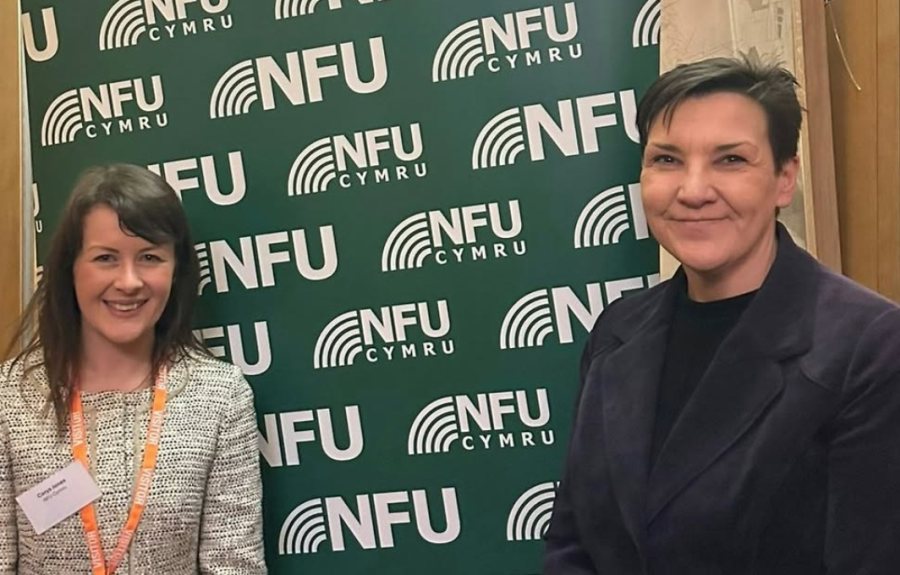
A Labour MP has declared her support for the farming industry and has urged her government to 'pause' its proposed changes to inheritance tax.
Tonia Antoniazzi, Labour MP for Gower, is the first from her party to urge Sir Keir Starmer and Rachel Reeves to take another look at the controversial measure.
The government announced a reform of agricultural property relief (APR) in the budget, meaning farms worth over £1m will incur a 20% inheritance tax charge from April 2026.
"I support the National Farmers Union's call for a pause on the government's proposed changes to inheritance tax," Ms Antoniazzi said.
"We need time to gather information to determine the full impact the changes will have to family farms in Wales.
"It was good to meet the NFU's Carys Jones and hear about her dairy farm in Monmouthshire."
It comes after the prime minister said 'there is a choice' between NHS waiting lists coming down and maintaining the agricultural property tax relief for farmers.
Sir Keir made the controversial comment on live television on Thursday (13 February) after being forced to leave a visit to a housing development in Milton Keynes early due to nearby protesting farmers.
Speaking to Sky News after, he said: "These are political choices, but what you can't have is interest rates coming down, the growth we need in the economy, your waiting lists coming down, and maintain the tax break for farmers.
"People watching this will understand that that is a choice. They will know what they would prefer."
This came just one day after the government was criticised at PMQs following comments made by farming minister Daniel Zeichner, who told farmers at the Norfolk Farming Conference that they were 'not high up on the government's pecking order’.
The string of controversial statements from the government follow the farming industry's latest protest in Whitehall on Monday, the third rally in the capital since the autumn budget.
Organised by Save British Farming, the protest also took place against the backdrop of wider financial pressures, including high costs and low returns, and uncertainty over future policy.
